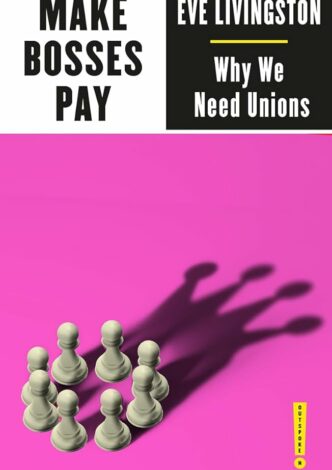There isn’t a lot of history in Eve Livingston’s book – “The British labour movement: A potted history” pages 10-15 – but what there is is sharp and perceptive. “The days of unionised and secure jobs in manufacturing and industry, and a time when class was widely recognised as an organising principle for society, have long made way for precarious and exploitative work and an active attempt to obscure and the experience and effects of class difference.”
But while acknowledging the impact of anti-trade union legislation and the sharp decline in trade union membership – the loss of 275,000 in 2017 – the author sees hopeful signs. “Unions are not just mechanisms for protecting your rights at work, but vehicles for shaping society.” She includes in her definition of unions not only organisations like United Voices of the World and the Independent Workers of Great Britain but also ACORN, established in Bristol in 2014 and organising communities rather than workplaces. In 2017, she asserts, ACORN’s protests stopped the mayor’s scrapping of council tax exemption for people on low incomes.
The later chapters include imaginative ideas for “Organising in the Digital Age”, mentioning the initiative of my own union BECTU in using KickStarter to successfully recruit Visual Effects workers, a large migrant workforce fearful of immigration status. Sharply critical of the conservatism of some trade union officials, she stresses that “it is within our power to break into unorganised sectors, prioritise liberatory politics, campaign beyond our workplaces, embrace new technologies, reimagine union structures and act as a training ground for the young working class.”
Colin Thomas
